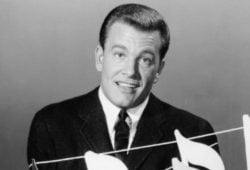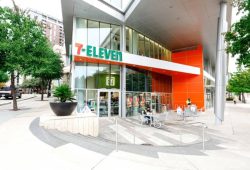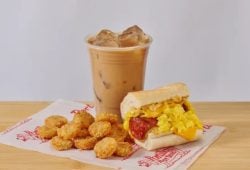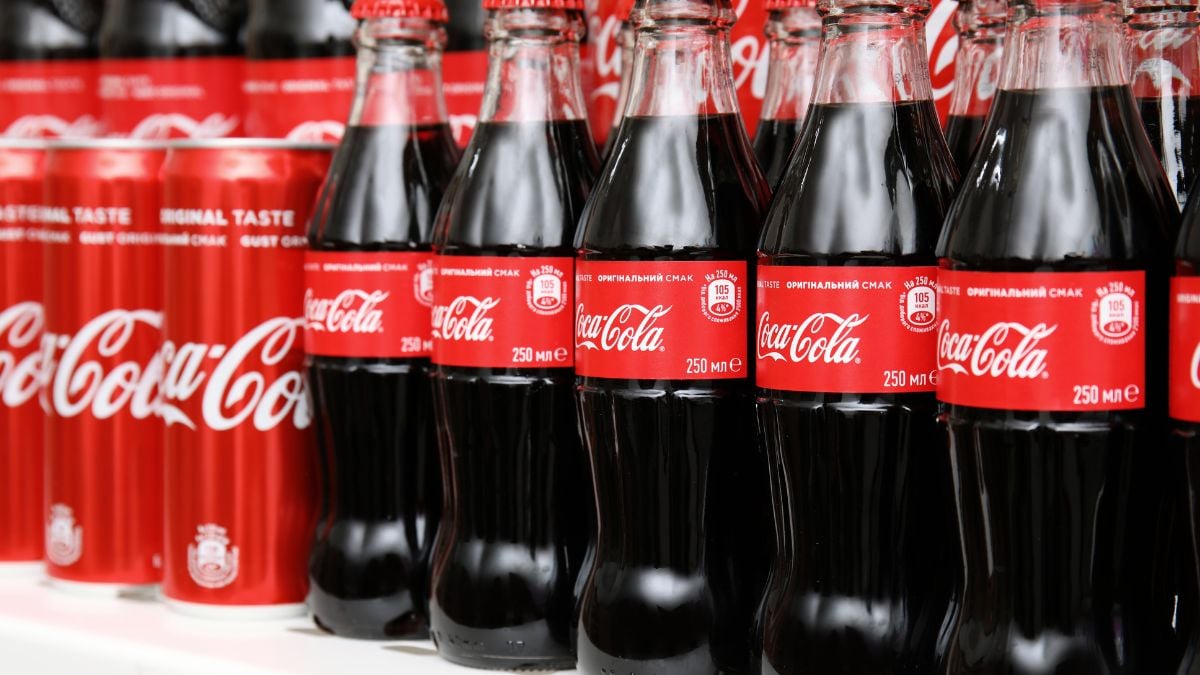
After the boycott sparked by rumors spread on social media, Coca Cola launched a direct and surprisingly traditional strategy: giving away beverages at neighborhood stores. The dynamic is simple yet effective: when purchasing a 600 ml bottle of Coca Cola (in classic, light, or zero versions), consumers receive another drink from its broad portfolio completely free of charge, including brands like Sprite, Fanta, Sidral Mundet, Fresca, Del Valle Fitzz, Del Valle Frut, or Delaware Punch.
This promotion is not supported by major advertising campaigns or social media posts. Instead, Coca Cola has chosen a street-level approach, using promotional banners displayed at grocery stores, corner shops, and local retailers. The goal is not only to boost sales through impulse purchases but also to reconnect with its community in everyday life—without algorithms or screens involved.
ALSO READ. Sam’s Club will open 15 new stores in the United States! Check out where
Why is Coca Cola facing a boycott in 2025?
The promotion comes at a critical time for the company. At the beginning of 2025, a video altered with artificial intelligence went viral on social media, sparking outrage among Latino consumers. The material falsely suggested that Coca Cola had fired and reported migrant workers at a plant in Texas. Although the content was later debunked, the damage had already been done.
In an official statement, the company categorically denied the accusations:
“The accusation that The Coca-Cola Company called immigration authorities to support the deportation of undocumented workers is completely false.”
Despite this effort, the hashtag #BoicotCocaCola remained active for weeks, fueled by political tension and distrust spread through social platforms. In Mexico, the boycott struck a chord, especially among younger consumers who demand transparency, business ethics, and social responsibility.
ALSO READ. Hello Kitty or Kuromi? Sanrio opens voting to choose your favorite character of 2025
What does Donald Trump have to do with Coca Cola?
The situation became even more complicated with the resurfacing of Donald Trump’s close relationship with Coca Cola, particularly with its Diet Coke version. During his presidency, it was reported that the former U.S. president consumed up to 12 cans a day and even had a special button in the Oval Office to request one.
Although anecdotal, this affinity has been used by some sectors to associate the brand with controversial political figures and stances. When Trump received a commemorative Coca Cola bottle during his inauguration, the backlash was immediate: many viewed the gesture as insensitive, especially among Latino and Mexican communities who had been targeted by his anti-immigration policies.
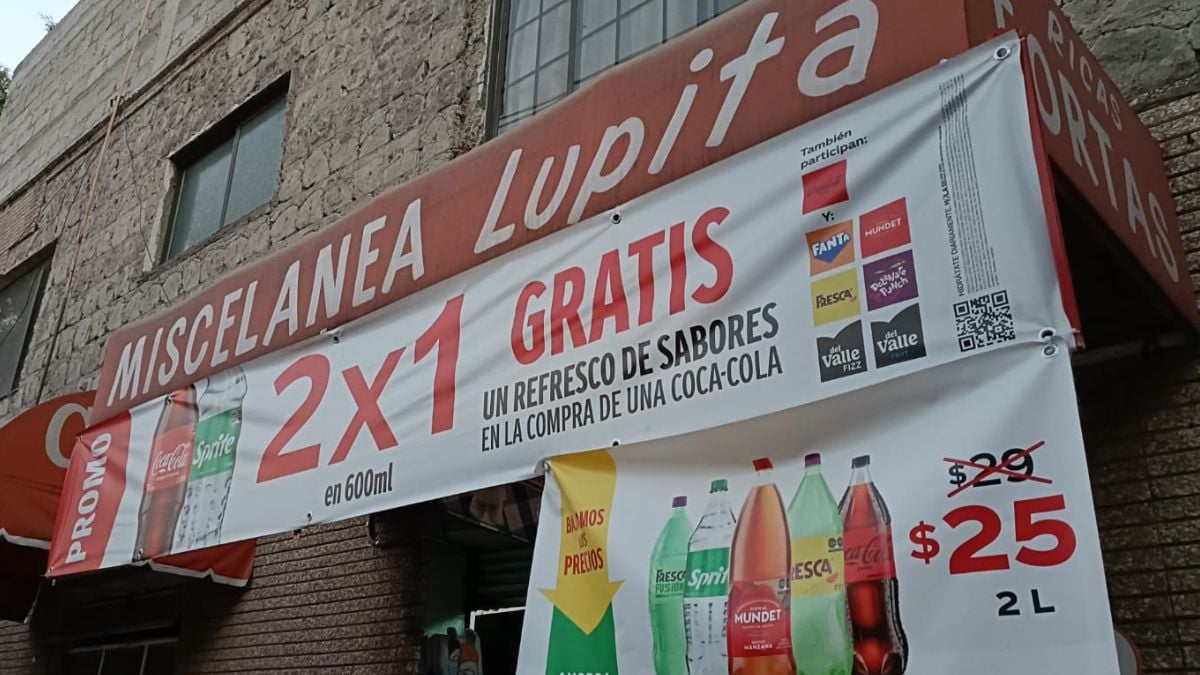
Why did Coca Cola return to local commerce?
Rather than respond with influencers or TV spots, Coca Cola appears to have made a strategic decision that goes back to its roots: trusting neighborhood shopkeepers. Physical banners at sales points allow for direct communication without relying on social media—which, in this case, played a negative role in its reputation.
This move also represents a kind of corporate humility. By offering products at no additional cost, Coca Cola not only seeks to increase its presence but to reestablish emotional bonds through everyday interactions. Instead of grand speeches, it offers something tangible and free.
Coca Cola joins Hecho en México
Amid the digital storm, Coca Cola doubled down on showcasing its Mexican roots. Through the Mexican Coca Cola Industry (IMCC), the company announced its participation in the “Hecho en México” campaign, promoted by the Ministry of Economy. This seal will appear on the caps of Coca Cola classic and sugar-free bottles, highlighting that its products are made in 73 plants across the country.
“Buying a Coca Cola in Mexico is supporting Mexican hands and hearts,” the company stated in a release aimed at strengthening its emotional and economic connection with Mexican society.
Coca Cola and the junk food ban in schools
Another major challenge for the brand was the enforcement, on March 29, 2025, of a decree by the Ministry of Public Education (SEP) and the Ministry of Health that bans the sale and distribution of junk food in all public and private schools in the country. This includes sodas, chips, candy, and ultra-processed foods with nutritional warning labels.
As Coca Cola falls under this category, it can no longer sell or promote its products in the 258,689 schools of the National Education System. As a result, its strategy has shifted to other spaces like corner shops, reinforcing its presence in homes, small stores, and locations where such restrictions do not apply.
Who owns Coca Cola today?
Today, The Coca-Cola Company is a multinational corporation publicly traded on the New York Stock Exchange under the ticker symbol KO. There is no single individual owner of the brand; rather, shareholders own stakes of varying sizes. Among the most well-known investors is Warren Buffett, who, through his company Berkshire Hathaway, is one of the largest shareholders.
While we can’t attribute ownership to a single person, “The Coca-Cola Company” oversees the production, distribution, and marketing of the beverage through various bottling plants worldwide. Over the years, the company has also diversified by acquiring or partnering with other beverage and food brands.
A brand dominating in Mexico
- Brand awareness: 99% of Mexican consumers know Coca-Cola, making it the most recognized brand in the industry.
- Popularity: 83% of consumers who know the brand consider it one of their favorites.
- Consumption: 83% of consumers have consumed the beverage in the past 12 months, ranking it first in this metric.
- Loyalty: 91% of consumers who have tried Coca-Cola say they would drink it again, demonstrating strong retention.
- Media presence: Coca-Cola was mentioned in 86% of media and social media interactions, significantly above its competitors.
Coca-Cola’s performance far exceeds the industry average, where:
- Average brand awareness is 74%
- Average popularity of other brands is 40%
- Average consumption in the industry is 34%
- Average loyalty</strong





